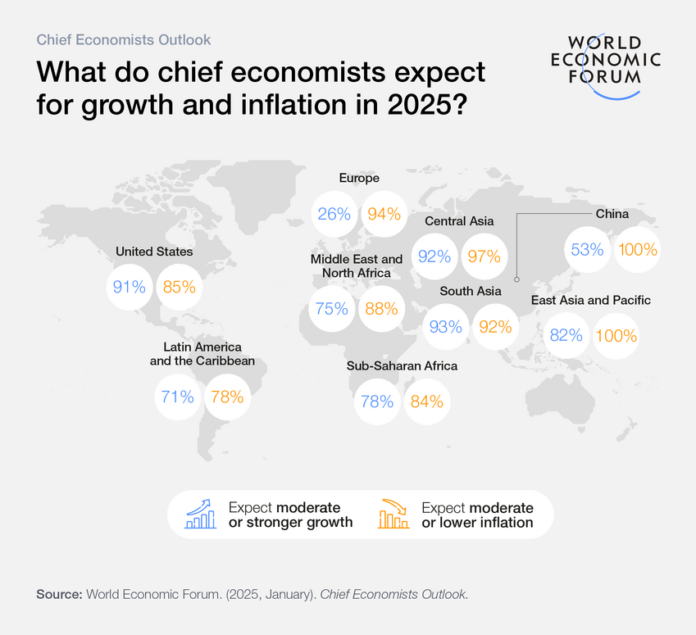
The global economic outlook for 2025 is marked by rising challenges, including economic fragmentation, escalating debt, and heightened political uncertainty. These insights are drawn from the latest Chief Economists Outlook by the World Economic Forum, which paints a complex and uneven picture of the global economy.
Weaker Global Growth Anticipated
A significant 56% of chief economists predict weaker global economic conditions in 2025, while only 17% expect any improvement. This underscores growing concerns about long-term economic stability.
Europe is set to remain the weakest region for the third consecutive year, with 74% of economists projecting weak or very weak growth. In contrast, the United States offers a glimmer of optimism. Short-term growth prospects have improved significantly, with 44% of economists expecting strong growth, a substantial increase from just 15% in mid-2024. However, this optimism is tempered by concerns over rising debt and inflation.
Regional Economic Insights
- United States: Near-term growth is driven by fiscal stimulus and rising wages, but long-term risks loom. A staggering 97% of economists expect debt levels to rise, and 94% anticipate higher inflation, signaling challenges ahead.
- China: Weak consumer demand and slowing productivity growth continue to drag on the recovery, emphasizing the uneven nature of global economic trends.
Global Trade and Fragmentation
While 48% of economists remain optimistic about global trade volume growth in 2025, this optimism is overshadowed by intensifying trade tensions and protectionist policies.
A vast 94% foresee fragmentation in goods trade over the next three years. Additionally, rising barriers to labor mobility and restrictions on technology transfers are expected to disrupt economic integration further. These shifts could lead to higher costs for businesses and consumers, as global supply chains adjust to geopolitical and economic pressures.
As the world faces these challenges, the report highlights the need for innovative policies and collaborative efforts to navigate the uncertainties of 2025 and beyond.


































